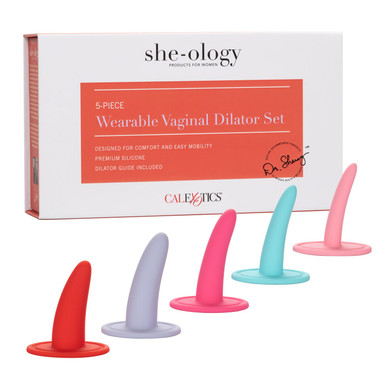
Don't Put Up With Painful Sex! Why Sex Can Be Painful
Jump To Section
Why Is Sex Painful? Understanding Dyspareunia
Why is sex painful? Why does sex hurt? Is it normal for sex to hurt? Should I put up with painful sex?
Painful sex for people with a vulva is a very common experience. Data from Australia suggests that 10% of people with a vulva experience pain during penetrative intercourse, whereas surveys from America put this figure closer to 75%. This difference in figures can possibly be attributed to the taboo and embarrassing nature of discussing sexual dysfunction with a health care professional. It is a subject which can be difficult to discuss with friends and partners, let alone a person who is almost a stranger. Sexual health continues to carry stigma which is slowly being dismantled. Painful sex should be viewed as a health condition, one which is prevalent and has a major impact on those who suffer with it. Addressing it will improve the physical and mental effects that result, as well as making sex pleasurable again. In this piece, I will talk about the symptoms, causes and risk factors for pain during penetrative sex for vulva owners, and the ways it can be managed and treated.
Symptoms
How It Feels
The medical term for painful sex is dyspareunia, which refers to lasting and recurrent genital and pelvic pain occurring before, during or after sex. There are numerous ways it presents itself including:
• Pain on first penetration of the vagina
• Pain with every penetration, including the insertion of tampons
The pain feels like a burning, throbbing, or aching, generally coming from deep within the body. Although it is not uncommon to have irritation or superficial pain/discomfort after sexual activity, the type of pain we are talking about here is generally more intense and longer lasting, sometimes remaining several hours after sex.
Pain is Personal
It is important to keep in mind that pain is a highly personal experience and the best measure of someone’s pain is their own self report. People have different tolerances to pain and discomfort, and different ways of expressing this. Open communication, without judging whether the pain is a problem to the person experiencing it, is the best first step to addressing it. Pain, and the management of episodic pain (such as pain during sex) and chronic pain (that which lasts longer than three months or expected healing time), continues to be a major challenge for health care professionals.
Causes and Risk Factors
There are a wide variety of reasons for why someone may experience pain with sex. The causes of this pain are broadly divided into pain that occurs primarily with entry, and pain that occurs with deep thrusting. However, emotional and psychological factors are also linked to many types of painful penetration, and these cannot be underestimated.
Pain During Entry
Pain that occurs primarily during entry can be associated with a few issues including not enough lubrication, injury or trauma to the area, inflammation, vaginismus, and structural differences.
A Note on Lubrication
It is important to remember that the amount of natural lubrication is not necessarily an indicator of not being turned on. Many vulva owners do not produce large amounts of natural lubrication for a variety of reasons, including the effects of hormonal changes and certain medications. Experimenting with lubricants to find one which provides the appropriate amount of lubrication is a great first step and one which everyone (regardless of what equipment you are packing!) should be familiar with.
Jo Aloe Lubricant

$26.95
JO Aloe combines their best-selling pH balanced, water-based formula with an infusion of organic aloe and hyaluronic acid. This carefully crafted blend results in a...… read more
Get One NowWhat Is Vaginismus?
Vaginismus are involuntary spasms of the vaginal wall which can make penetration to the area very painful. This can happen even when people want to have sex and usually occurs with touching of the genital area, regardless of the intent of the touching.
Pain With Deep Thrusting
Deep pain, on the other hand, is usually caused by certain illnesses or conditions (such as endometriosis and irritable bowel syndrome) or scarring from past surgeries or medical treatments such as hysterectomy and chemotherapy and radiotherapy.
Emotional and Psychological Factors
Emotional and psychological factors which can contribute to painful sex include stress (which tends to tighten the pelvic floor), fear of intimacy, mental health issues and a history of sexual abuse. You can see that sex is deeply tied to what is going on in our heads and therefore should not be minimised.
How Is It Treated?
The ways that painful sex for people with a vulva is treated is dependent upon the causes. Having open communication with your health care professional assists in working out what the cause is and how best to treat it. However, if you can narrow down what the cause is for your experience, that can help with exploring appropriate options. Sexual health is worth prioritising, and painful sex is not the norm. Getting help early will help, as continuing to have sex while it is painful can make things worse.
What to Expect from a Health Care Provider
Your health care professional will ask about your symptoms, how long you have had them and what triggers the pain. They will also ask you about other medical conditions that may be contributing to the pain. They may also want to do a physical exam and additional testing to find the cause.
Possible Treatment Options
Some causes can be treated with medication, physiotherapy, and changes to how you have sex.
She-Ology 5 Pc Wearable Vaginal Dilator Set

$129.95
Revitalize and strengthen vaginal muscles with the contoured She-Ology™ 5-Piece Wearable Vaginal Dilator Set. The uniquely designed 5-piece dilator kits are ergonomically curved and gradually...… read more
Get One NowTools and Products That May Help
There are many sexual health products available to help with painful sex, including if it is due to a short vaginal canal or thinning of the vaginal wall during menopause. Dilators, kegel balls and Ben Wa balls are also useful in cases of vaginismus. Keeping an open mind about how sexual health products can help cases of painful sex will help in management and recovery.
Keep Well!
Rem
FAQs
Is it normal for sex to hurt?
No. While mild discomfort can happen occasionally, persistent pain during or after sex is not normal and may be a sign of an underlying condition like dyspareunia.
What is dyspareunia?
Dyspareunia is the medical term for chronic or recurrent genital pain during, before, or after intercourse. It can be caused by physical, hormonal, or psychological factors.
What causes painful sex for people with a vulva?
Causes include lack of lubrication, vaginismus, endometriosis, hormonal changes, stress, trauma, or conditions like IBS. Each case can be different and may involve both physical and emotional factors.
Can painful sex be caused by stress or anxiety?
Yes. Emotional health plays a big role in sexual function. Stress and anxiety can cause pelvic floor tension, reduce arousal, and increase sensitivity to pain.
What are the treatments for painful sex?
Treatments vary based on the cause and may include medication, pelvic physiotherapy, use of lubricants or dilators, and mental health support or counselling.
What products can help with painful sex?
Vaginal dilators, kegel balls, Ben Wa balls, and hormone-supportive lubricants or creams can assist in reducing discomfort and rebuilding confidence during intimacy.
Should I keep having sex even if it hurts?
No. Continuing painful sex can increase anxiety and physical symptoms. It’s best to pause, identify the cause, and explore treatment with a supportive healthcare provider.










